Variations and Trends in
Postal Regulatory
Oversight
- Research and Insights Solution Center -
United States Postal Service Office of Inspector General
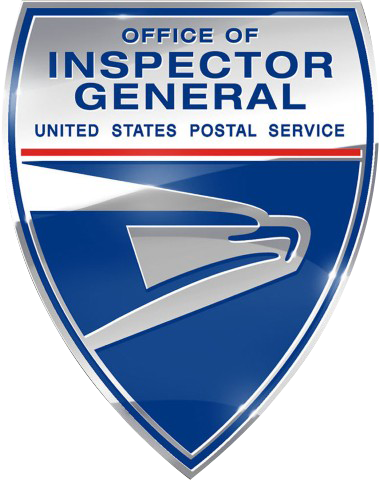
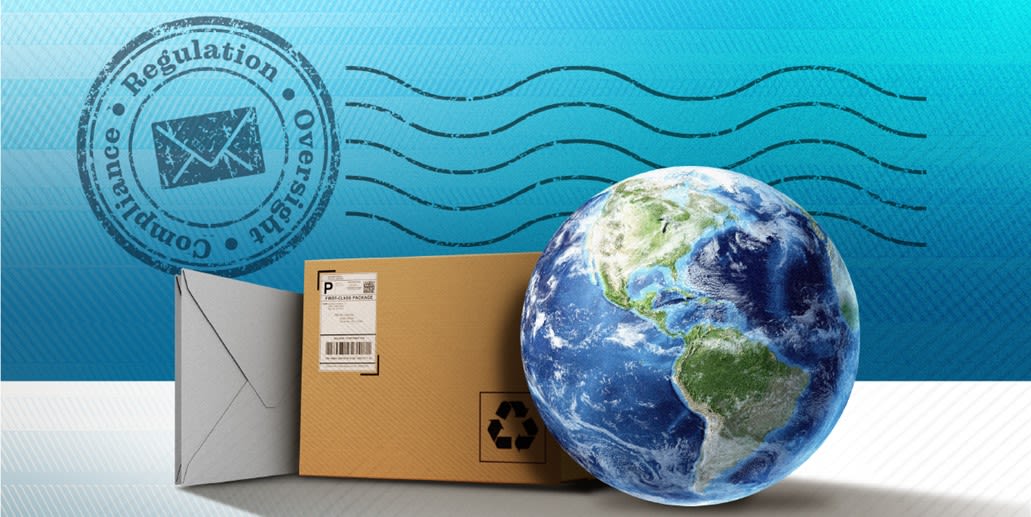
Postal markets around the world
are transforming.
Letter mail volume is declining while the growing parcel market becomes
increasingly competitive.
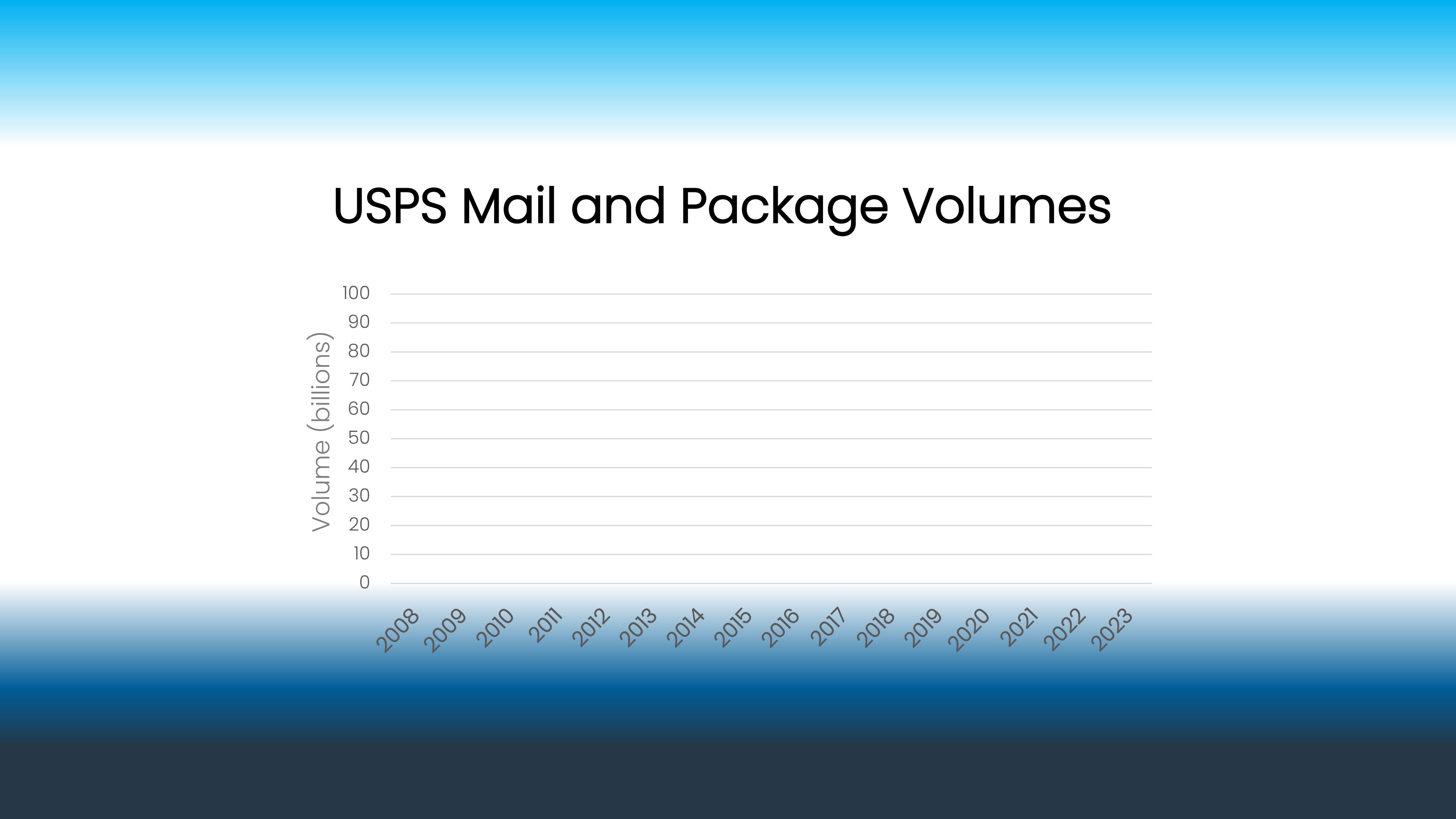
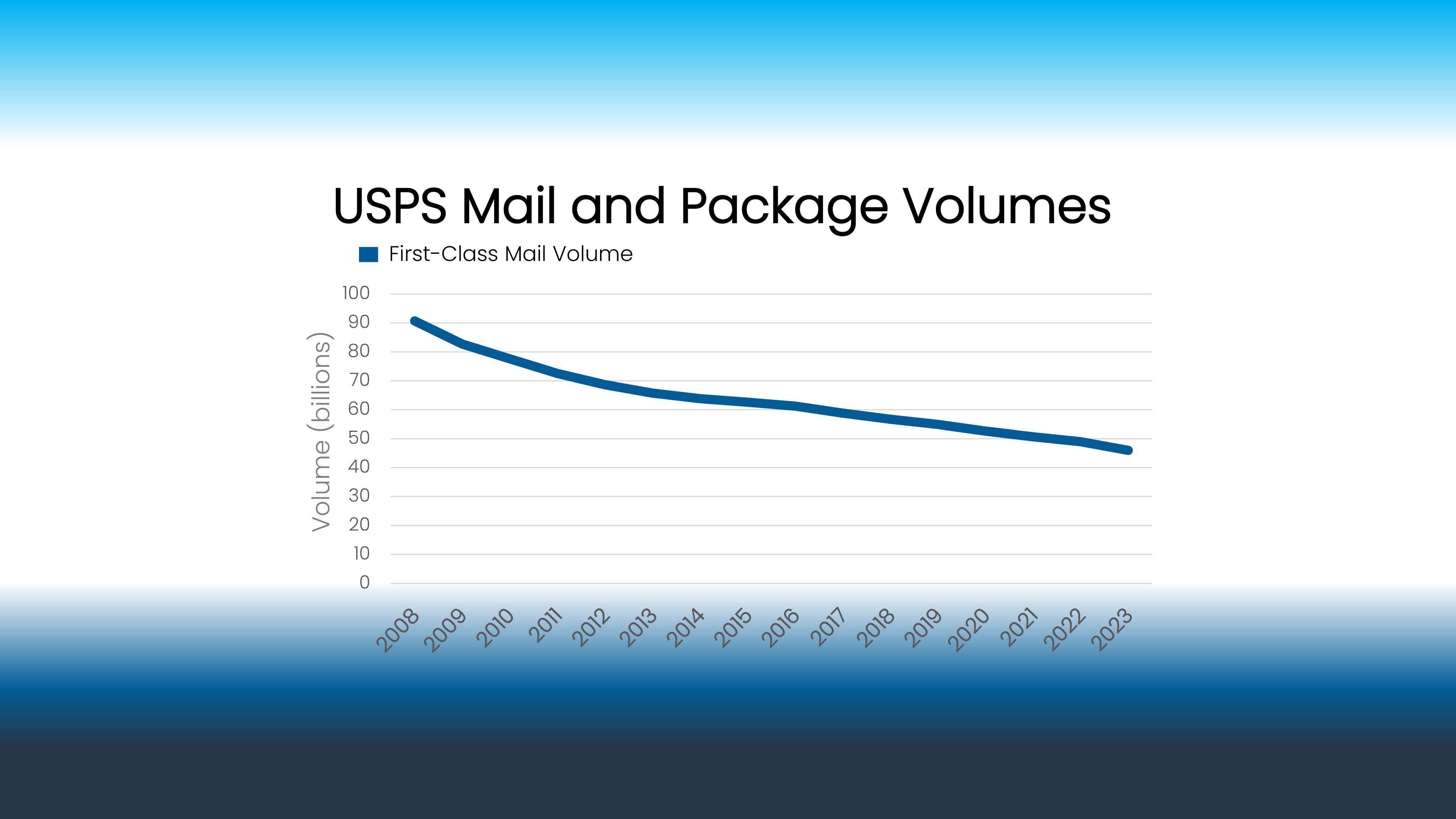
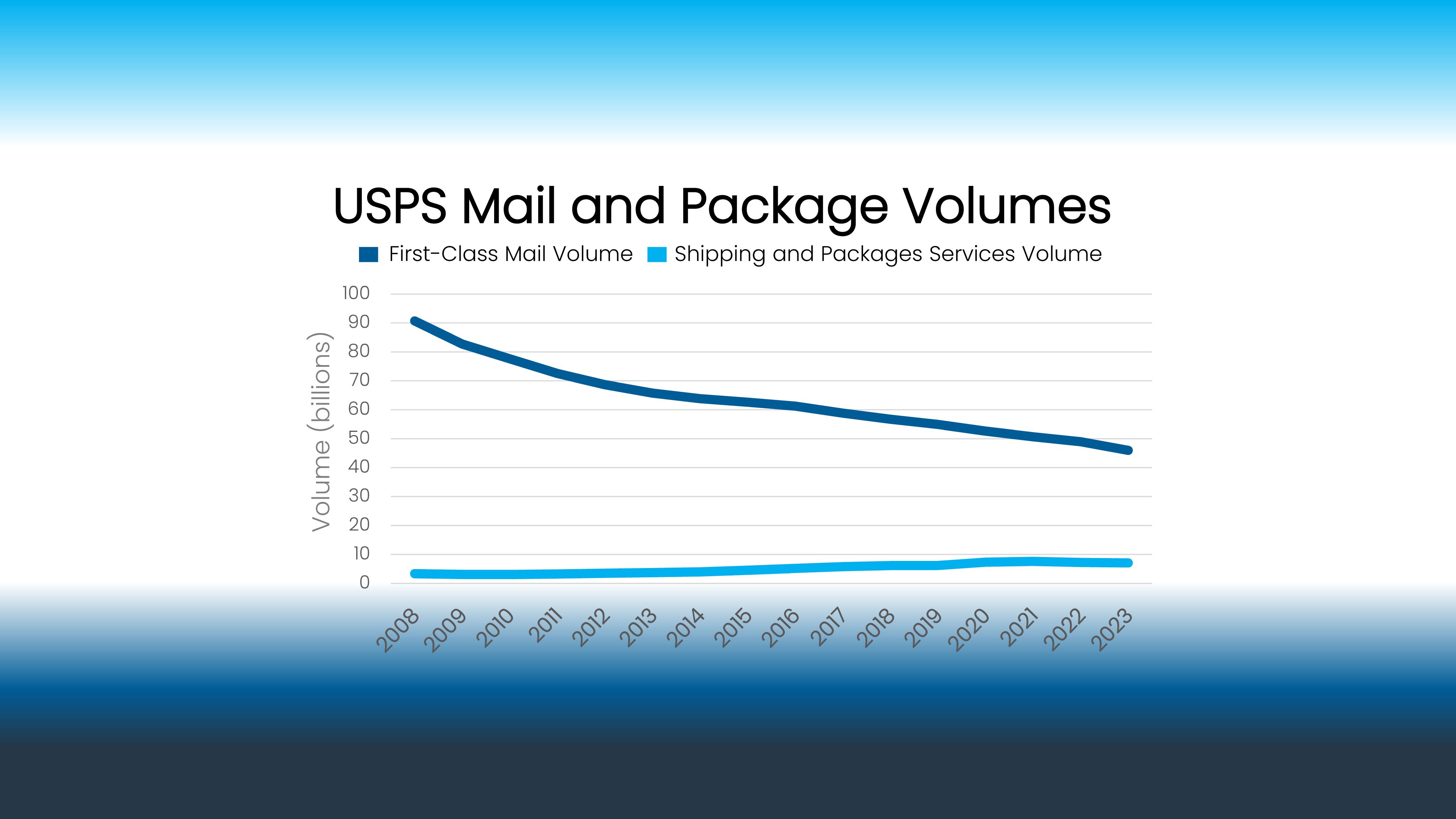
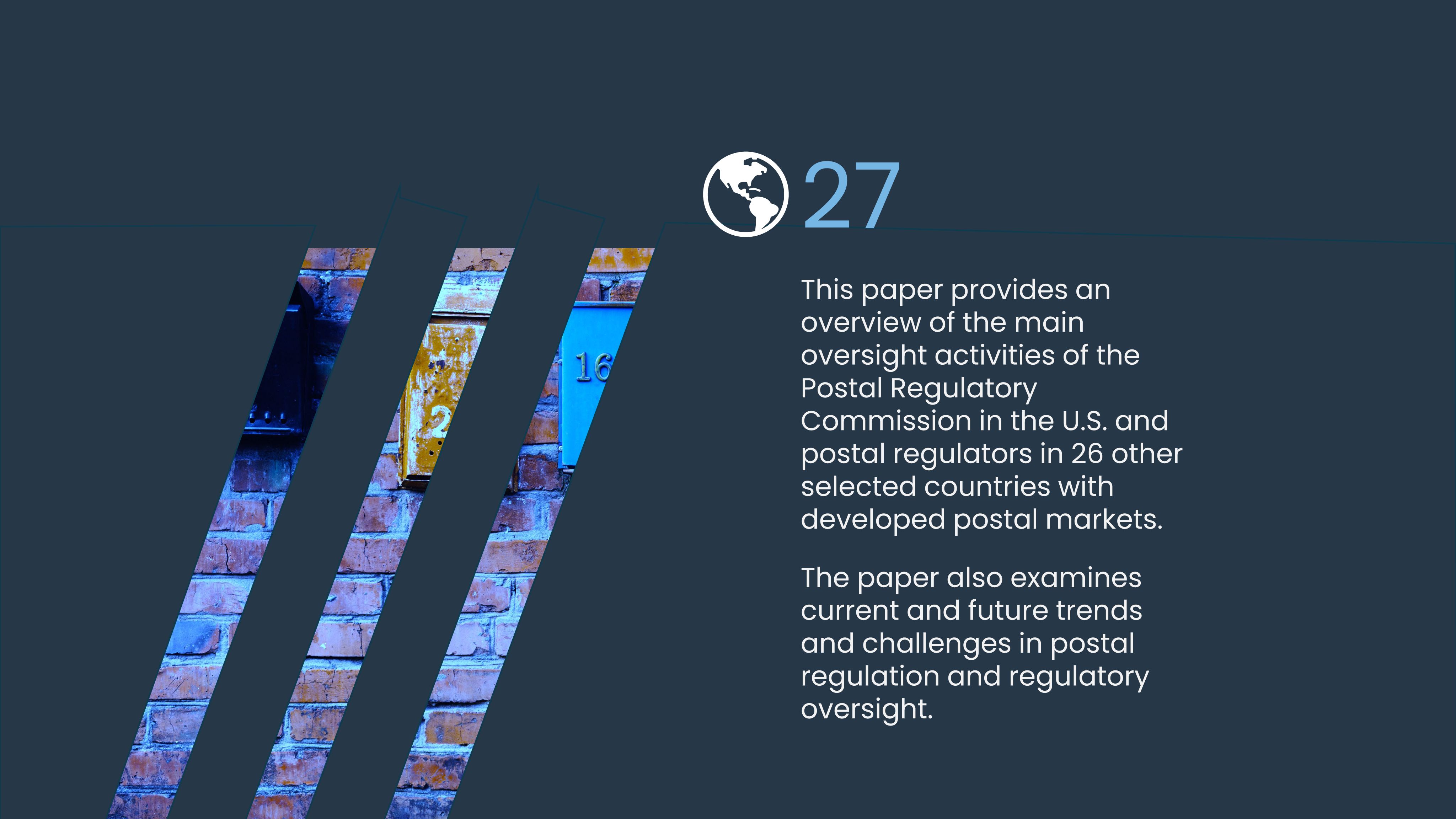


Purpose of Postal Regulators
- Exercising independent regulatory oversight
- Ensuring continued delivery of universal and affordable postal services, including: monitoring the post's service quality and performance, overseeing the fulfillment of the universal service obligation, regulating prices, and sanctioning violations of laws and regulations



The U.S. Postal Regulatory Commission
- The Postal Regulatory Commission (PRC) is an independent federal agency that exercises regulatory oversight over USPS.
- The commission is comprised of five commissioners, appointed by the president and serving six-year terms.
- The PRC is supported by a staff of around 70.


Structures and Regulatory Models

Multi-Sectoral Regulators
Regulate the postal sector and other adjacent industries, such as telecoms or energy
Australia
Austria
Belgium
Croatia
Czech Republic
Denmark
Estonia
Finland
France
Germany
Hungary
Ireland
Italy
Netherlands
Portugal
Slovakia
Slovenia
Spain
Sweden
United Kingdom
Single-Sector Regulators
Dedicated postal regulators that regulate the postal sector only
United States
Switzerland
No Independent Regulator
A government ministry or department is responsible for regulation and oversight of the postal sector
Belarus
Canada
Israel
Japan
New Zealand
South Korea
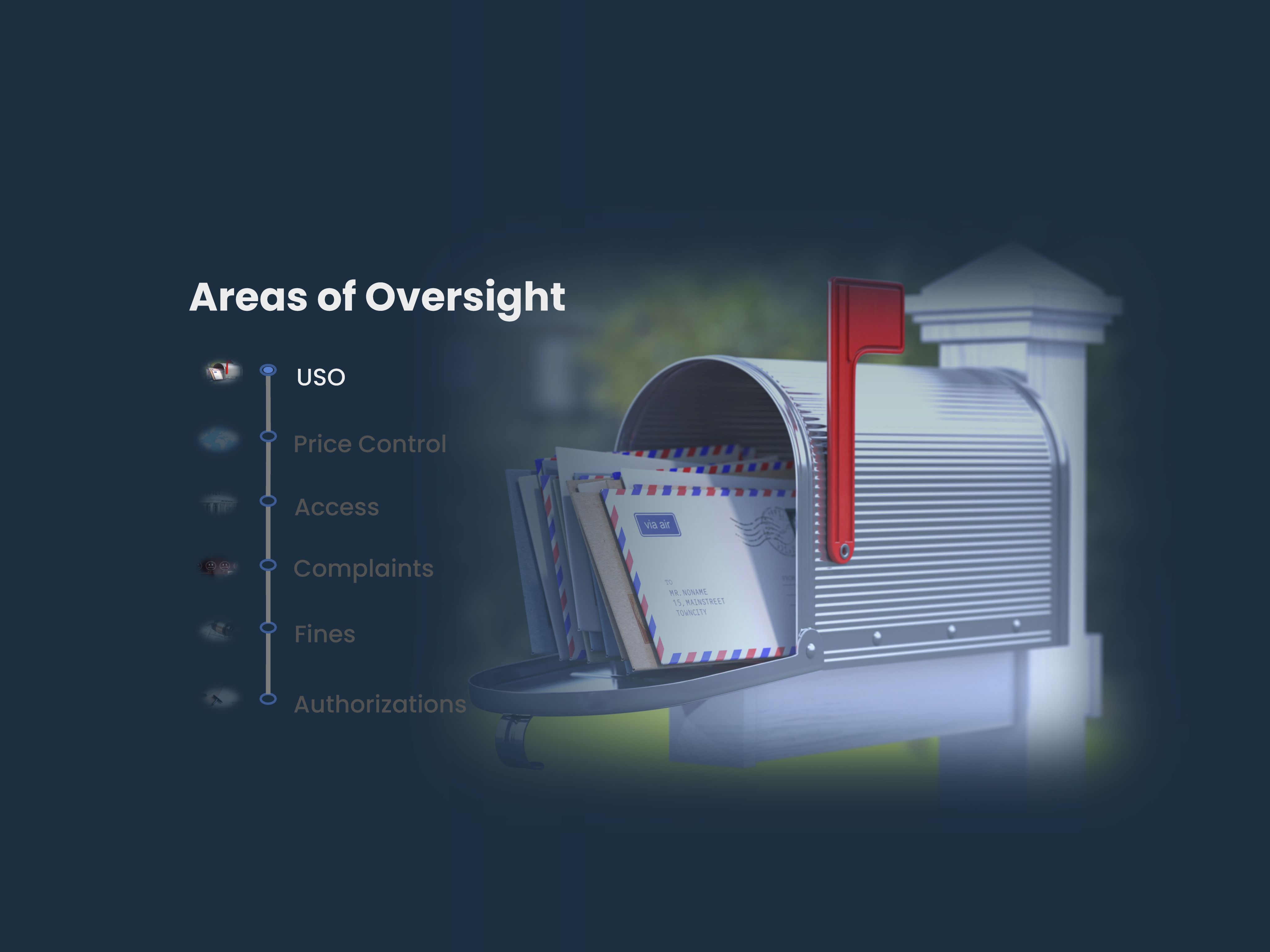
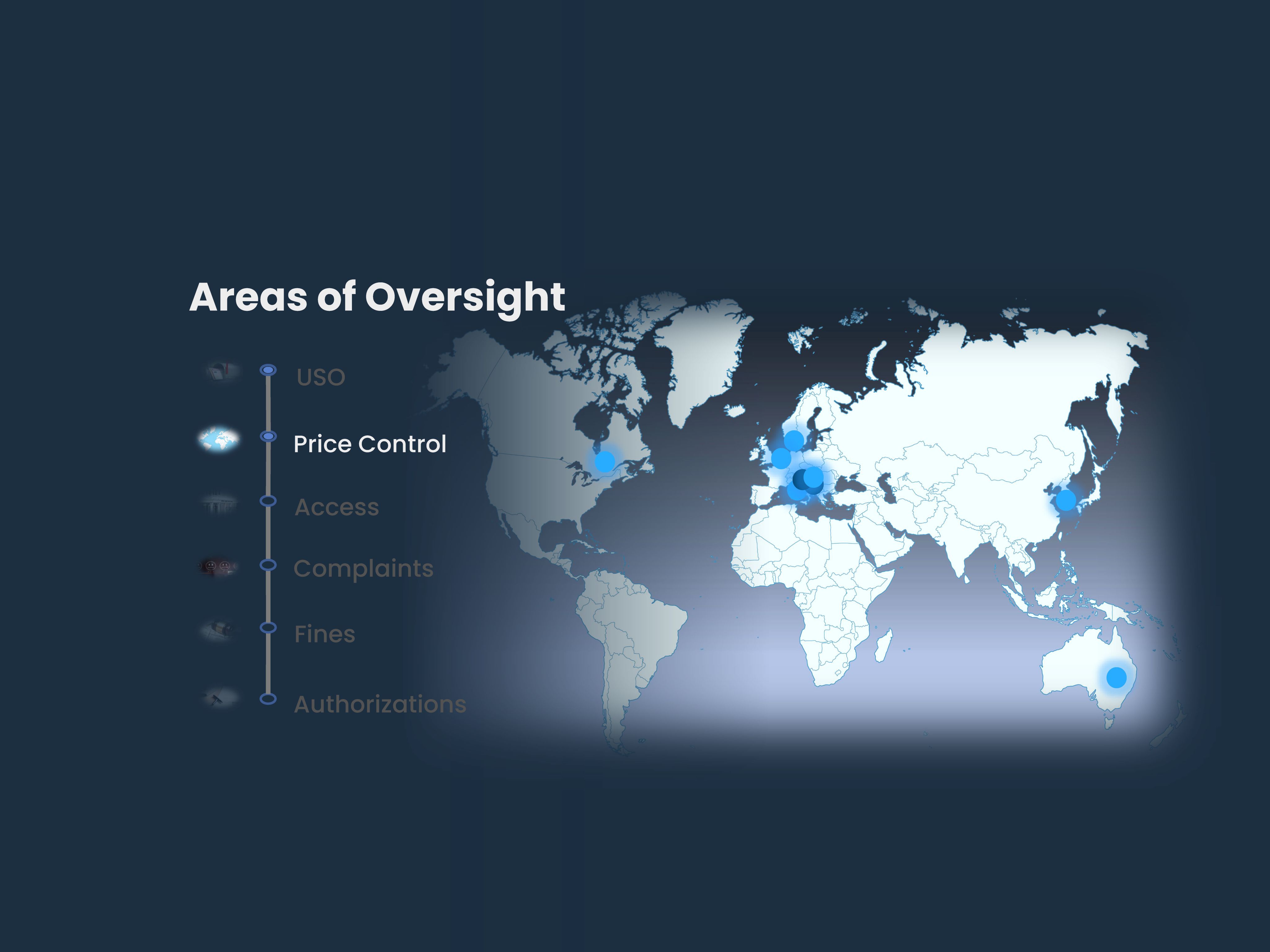
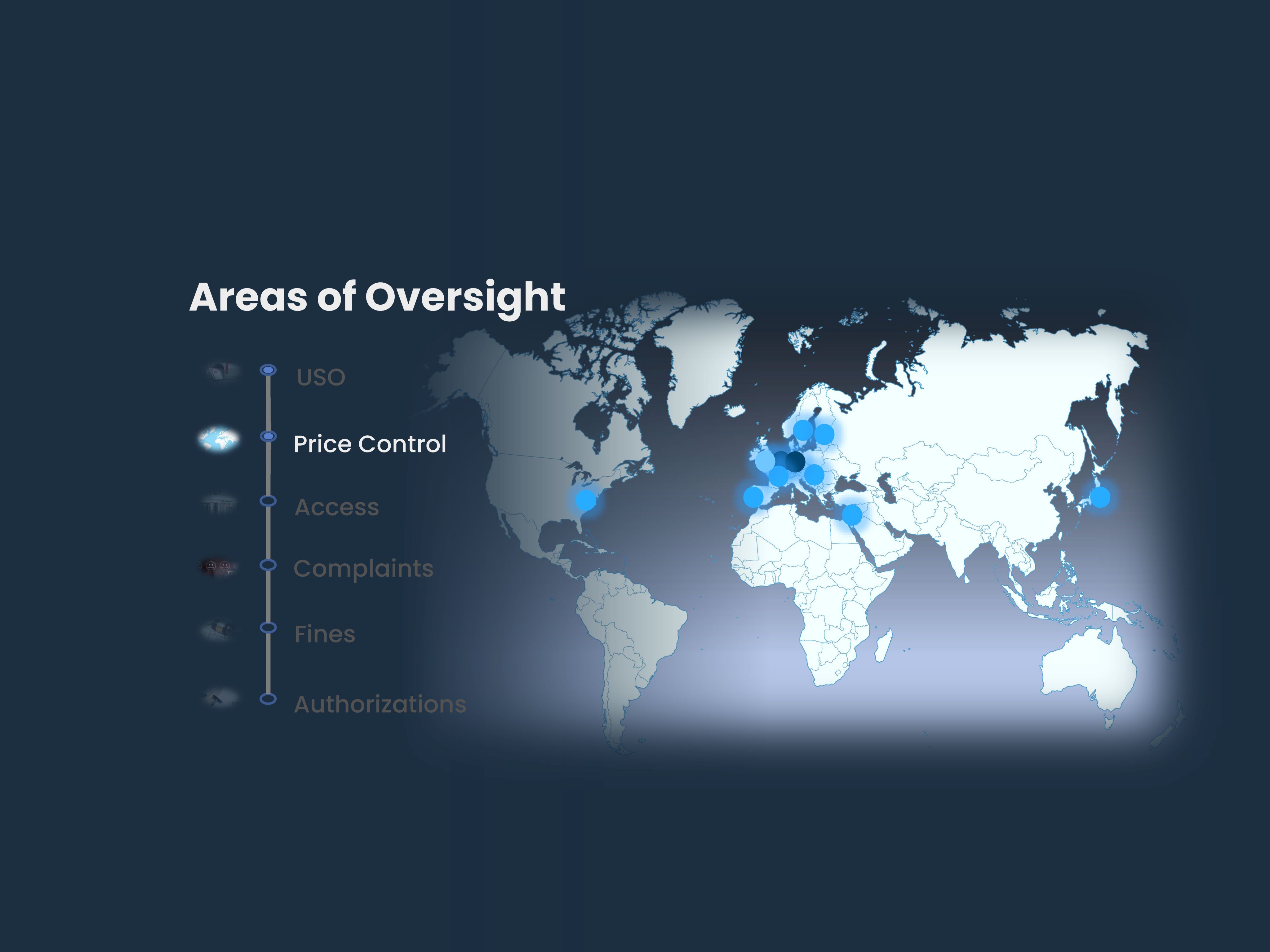
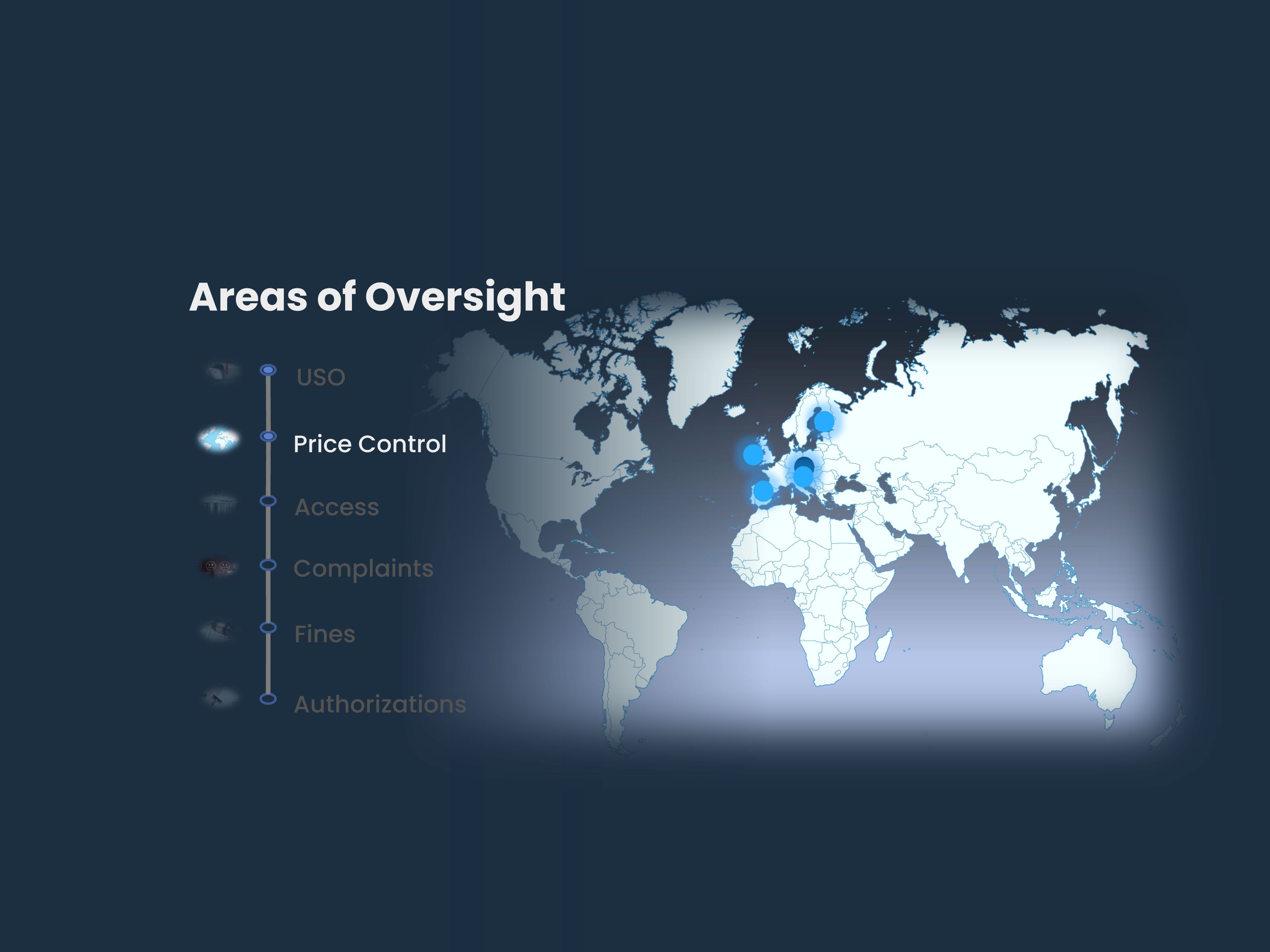
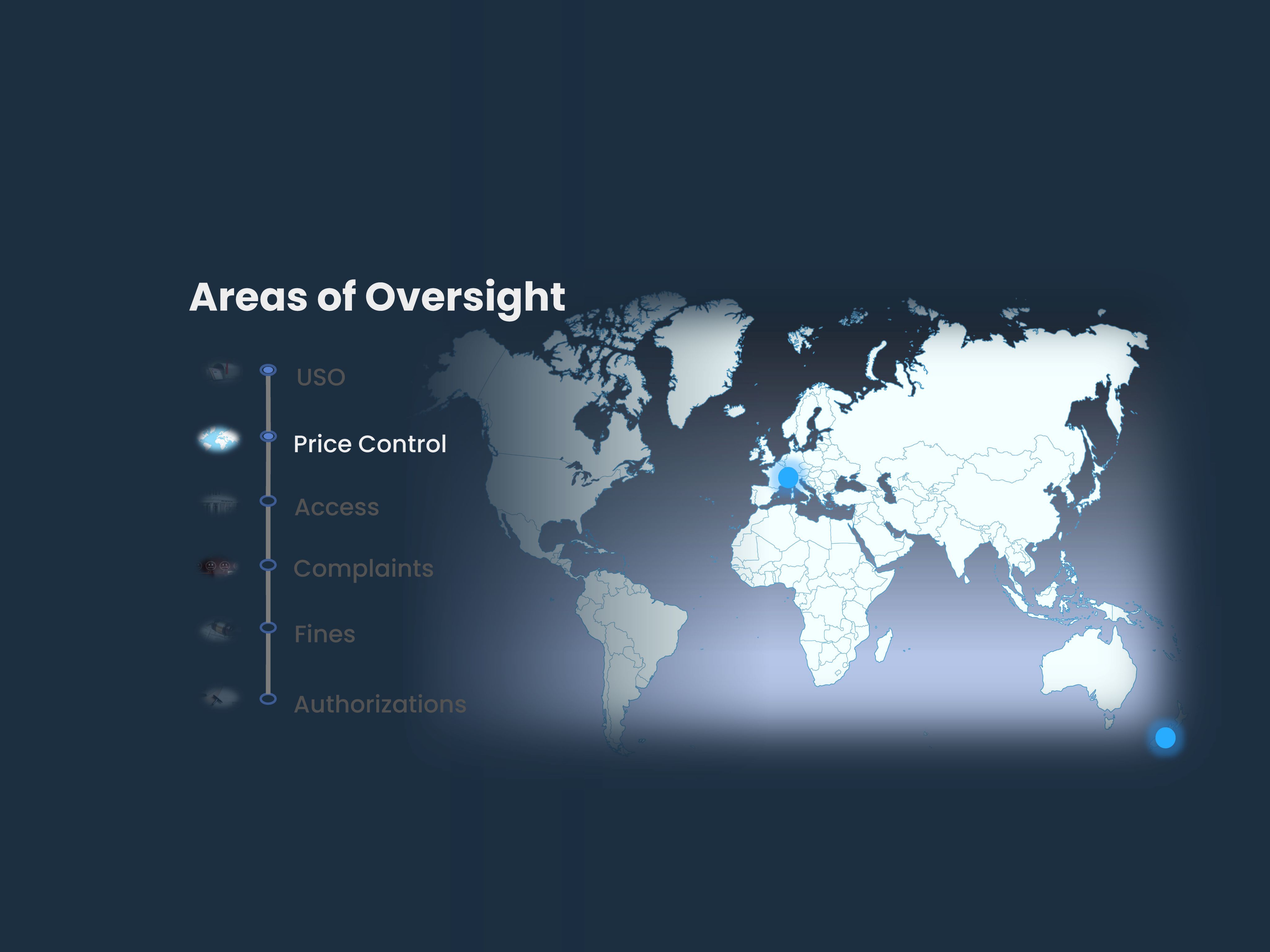
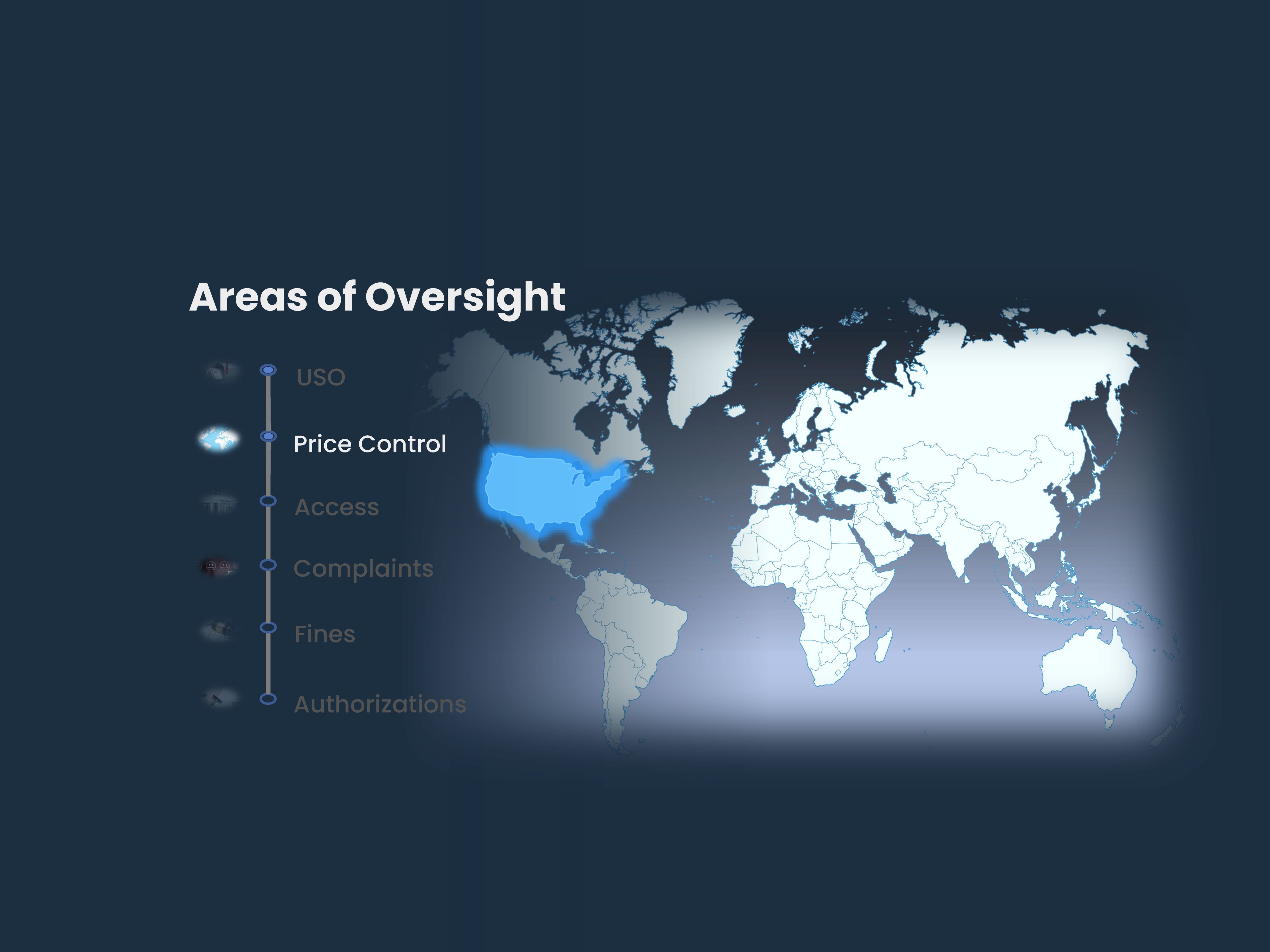
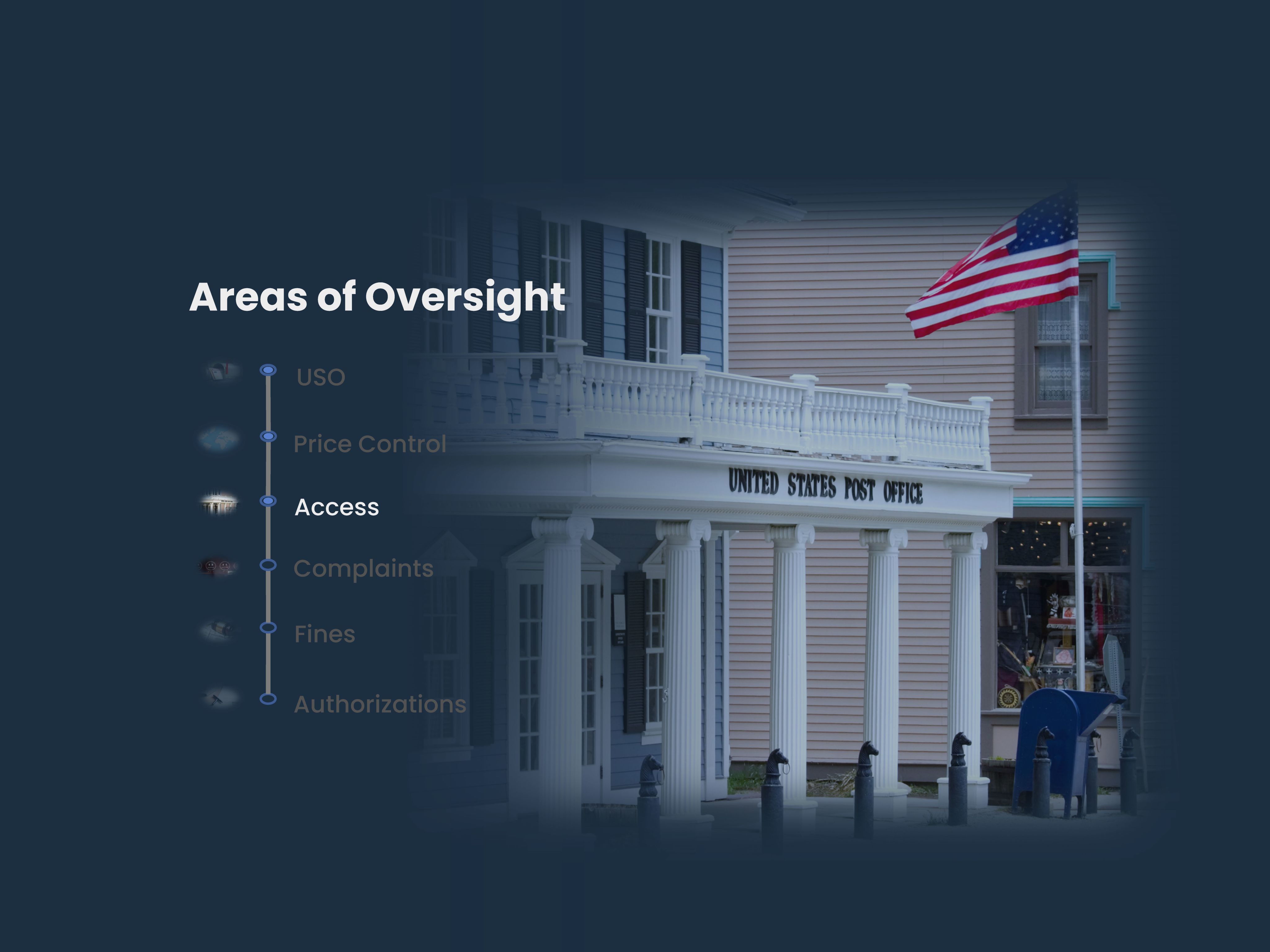
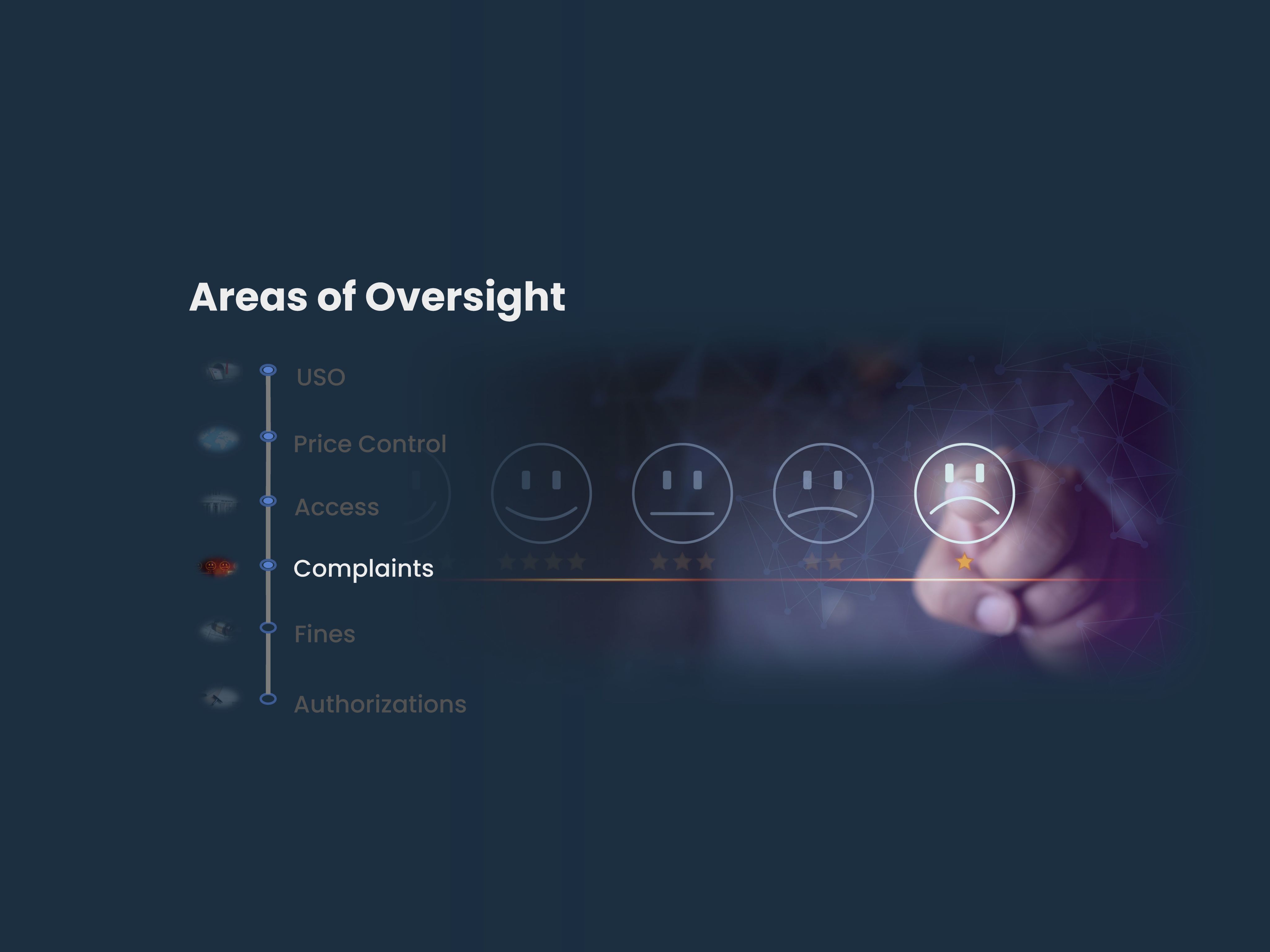
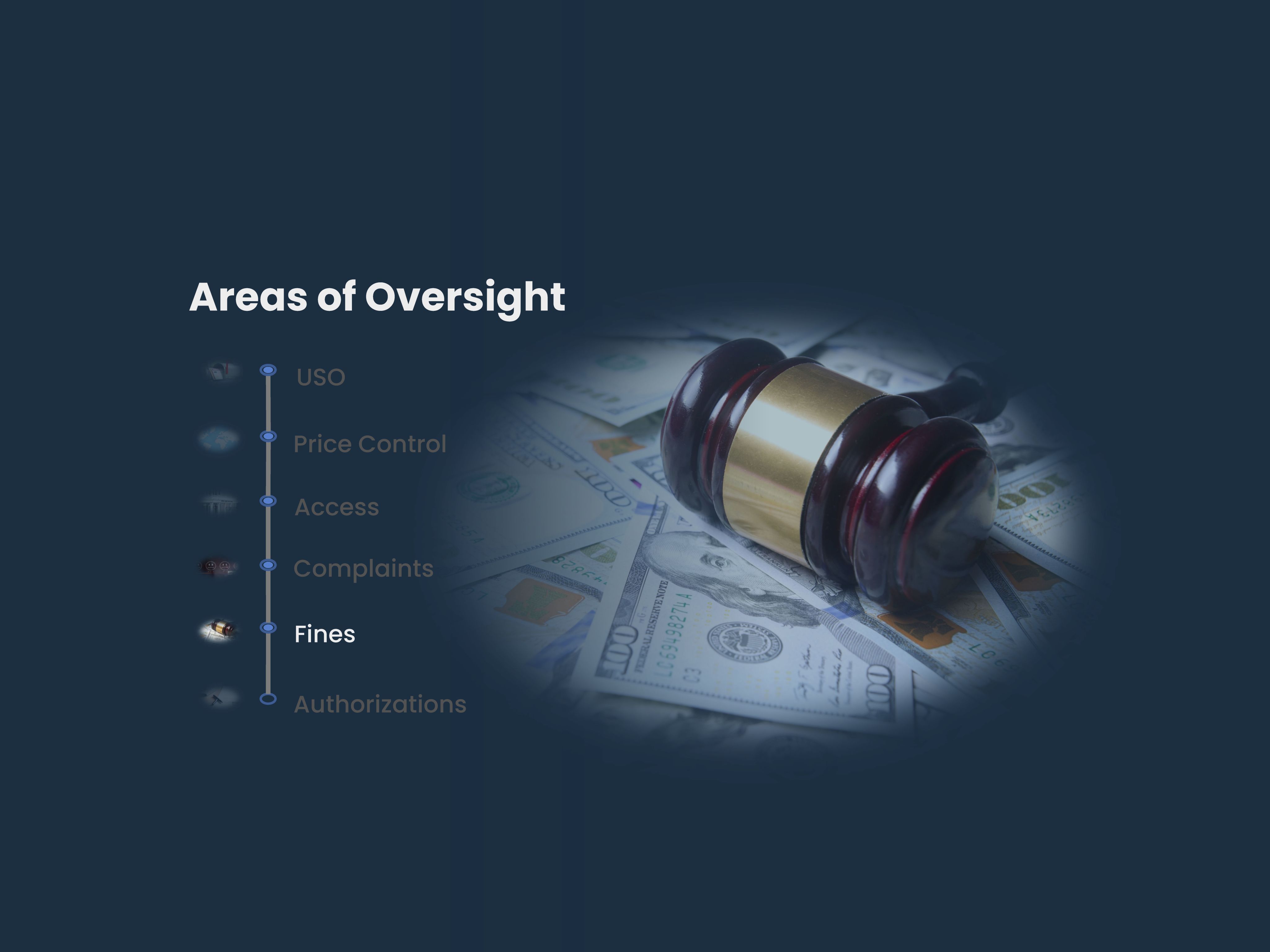
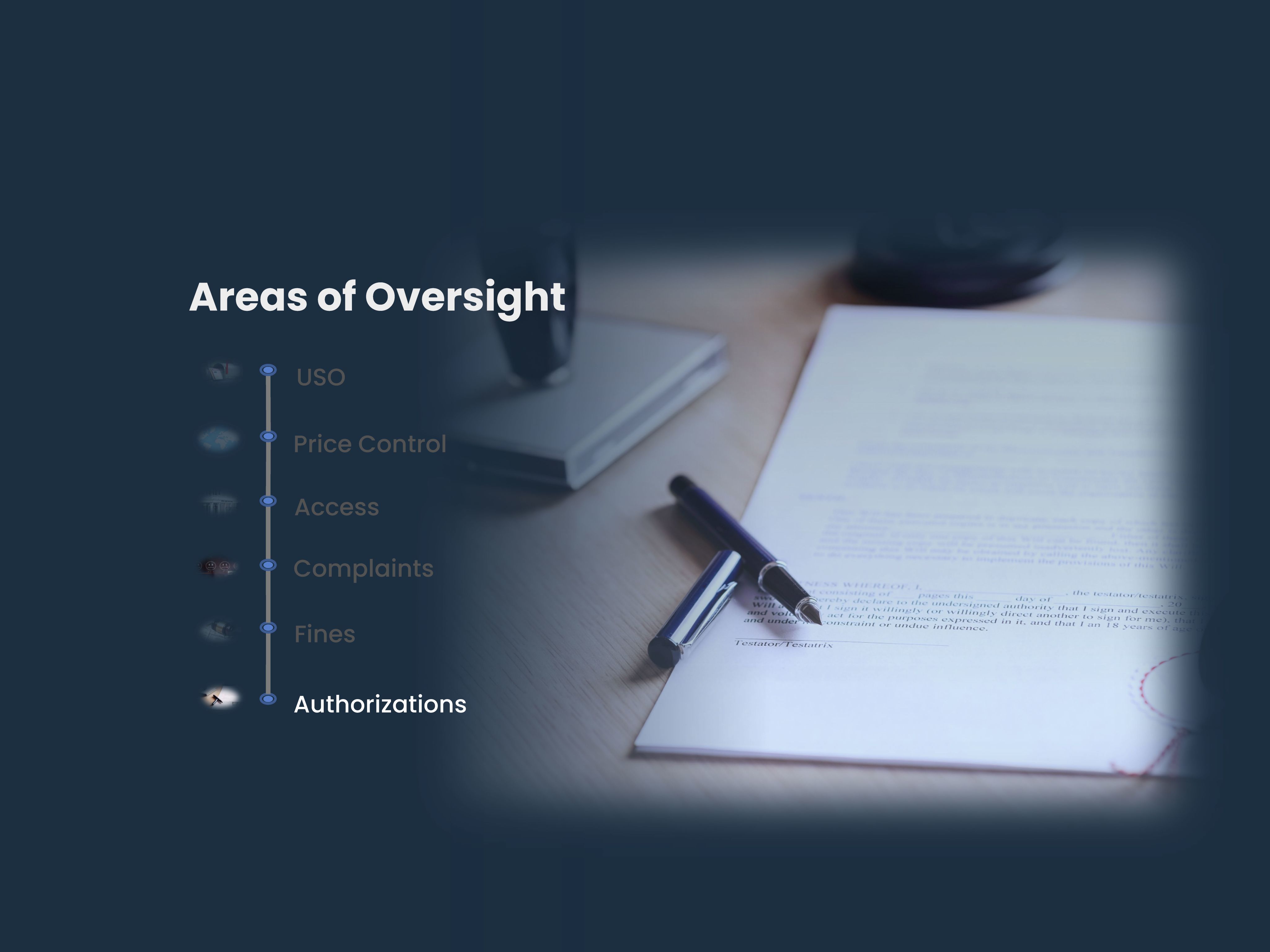
Oversight of the Universal Service Obligation (USO)
- For some countries, the USO is fully defined in national law. However, the regulator can influence decisions about the USO through a role in advising policymakers or it may have the authority to determine the parameters of at least one aspect of the USO.
- The U.S. postal regulatory framework is different in that the Postal Service itself can set most USO targets except the six-day delivery mandate.
Price Oversight
Ex ante review: The regulator reviews proposed price changes before they take effect to ensure compliance with the law and guiding principles, such as affordability or cost orientation.
Price Oversight
Ex ante review with price cap: Ex ante oversight can be done through a price cap, with the regulator verifying that proposed new prices fall within the rate authority provided under the cap. The cap formula can be set by law or regulations or established by the regulator.
Price Oversight
Ex post review: In some countries, a regulator only reviews price changes after implementation by the national post. The regulator may then order corrective action if the pricing is found to be noncompliant with laws and regulations.
Price Oversight
In some countries, the postal regulator does not oversee prices. Another government entity may have that responsibility.
Price Oversight in the United States
- There is ex ante review with a price cap for Market Dominant products. There is a less constraining ex ante review for parcels to ensure prices cover costs.
- The PRC, not the law, defines the price setting mechanism for Market Dominant (monopoly) products. The U.K. is the only other country in our comparison set with a similar authority.
- The PRC’s price cap applies to a larger percentage of postal volume than is the case for the seven largest European countries in our comparison set that implement price caps.
Ensuring Universal Access to the Postal Network
- Most regulators monitor posts’ compliance with access requirements; some are empowered to go beyond monitoring and can make decisions regarding the location of postal access points, such as post offices or collection boxes.
- The U.S. regulatory framework does not include specific targets regarding access to the postal network, as in the case in many other countries.
- The PRC cannot reverse a Postal Service decision to close or consolidate a post office but can return that decision to USPS if it finds the agency has not followed applicable laws.
Responding to Customer Complaints
- Can consist of advising and reporting on complaints received by the national post, or may involve directly handling complaints.
- Like some other regulators, the PRC hears complaints about USPS compliance with rules governing rates, service, and competition.
Enforcement and Fines
- Most regulators can levy fines if a post or delivery company fails to comply with an order or regulation.
- The PRC has comparatively limited enforcement powers and has never fined the Postal Service, although it has the legal authority to do so.
Market Entry, Competition, and Commercial Contracts
- Unlike other postal regulators in our comparison set, the PRC does not have a role granting authorizations and licenses.
- The PRC reviews Postal Service accounts to verify there is no cross-subsidization.
- The PRC is unique among postal regulators in approving commercial contracts (Negotiated Service Agreements).
Challenges and
Future Trends

How to Revise the USO for the Future?
- An increasingly competitive parcel market, changing customer preferences, and mail volume decline have made it more difficult for national posts to financially sustain current USO services.
- In response, countries are recognizing a need to revisit their USOs and engage in political discussions about the future of postal services.
- Changes to a country’s USO are likely to impact the scope of oversight and regulatory activities of postal regulators.
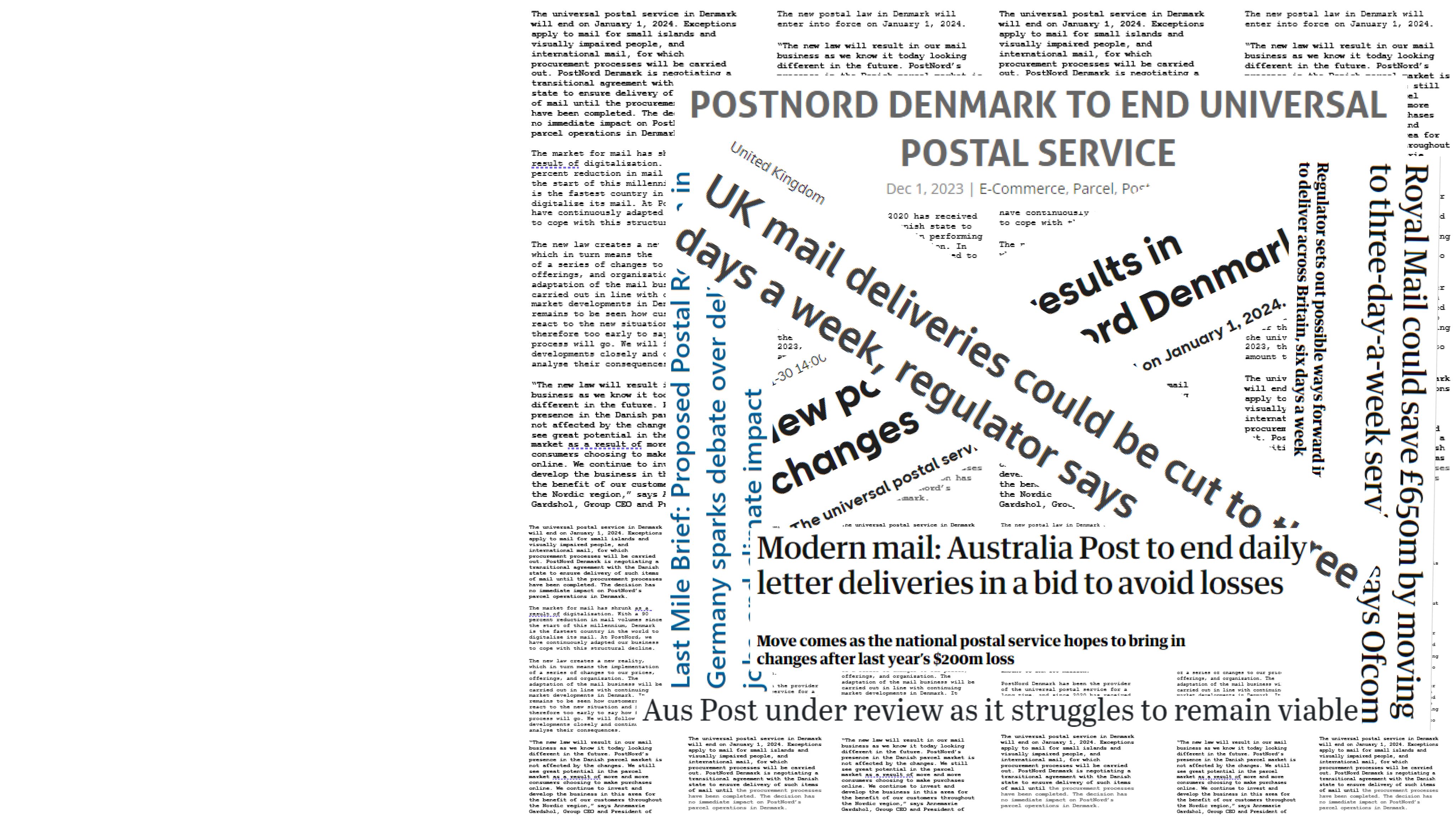
Changes to USO Delivery Days and USO Service Standards:
Recent Examples
New Zealand (2013)
- The government authorized alternate day delivery outside rural areas
Denmark (2018)
- Delivery frequency for standard letters was reduced to one day per week
Belgium (2019)
- Alternate day delivery was implemented for non-priority mail
- Management contract allowed delivery standards to be changed from one day after collection to three days after collection
Australia (2024)
- It is reducing regular letter delivery frequency from every business day to every second business day
- One extra delivery day was added to delivery standards for regular letters
What is the Role of Regulators in Evolving Postal Markets?
- Countries are assessing how postal regulation may need to adapt to changing mail and parcel volumes and new business models in the delivery space.
- There is considerable diversity in the approach to postal regulation. The choices of policymakers will depend on a variety of factors including a country's specific market characteristics.

Variations and Trends in
Postal Regulatory Oversight

Contact Us
For media inquiries, please email press@uspsoig.gov












